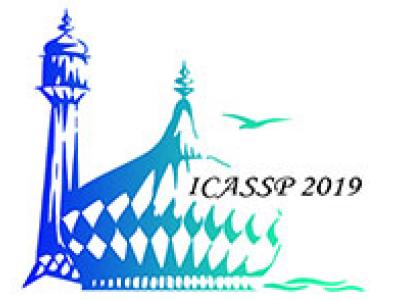
ICASSP is the world’s largest and most comprehensive technical conference focused on signal processing and its applications. The 2019 conference will feature world-class presentations by internationally renowned speakers, cutting-edge session topics and provide a fantastic opportunity to network with like-minded professionals from around the world. Visit website.

- Read more about Detection of Pilot-Hopping Sequences for Grant-Free Random Access in Massive MIMO Systems
- Log in to post comments
- Categories:
 56 Views
56 Views
- Read more about Importance of analytic phase of the speech signal for detecting Replay attacks in automatic speaker verification systems
- Log in to post comments
In this paper, the importance of analytic phase of the speech signal in automatic speaker verification systems is demonstrated in the context of replay spoof attacks. In order to accurately detect the replay spoof attacks, effective feature representations of speech signals are required to capture the distortion introduced due to the intermediate playback/recording devices, which is convolutive in nature.
- Categories:
 85 Views
85 Views
This paper explores the modeling and exploitation of semi-local similarity in natural images to address the ill-posed nature of image interpolation. Our approach distinguishes itself from prior approaches by direct and careful use of semi-local similar patches to interpolate each individual patch. Our work uses a simple, parallelizable algorithm without the need to solve complicated optimization problems. Experimental results demonstrate that our interpolated images achieve significantly higher objective and subjective quality compared with those from state-of-the-art algorithms.
- Categories:
 48 Views
48 Views
- Read more about CHANNEL IMPULSIVE NOISE MITIGATION FOR LINEAR VIDEO CODING SCHEMES
- Log in to post comments
The problem of impulse noise mitigation is considered when videos encoded using a SoftCast based Linear Video Coding scheme are transmitted using an OFDM scheme over a wideband channel prone to impulse noise A Fast Bayesian Matching Pursuit algorithm is employed for impulse noise mitigation This approach requires the provisioning of some OFDM subchannels to estimate the impulse noise locations and amplitudes Provisioned subchannels cannot be used to transmit data and lead to a decrease of the nominal decoded video quality at receivers in absence of impulse noise Using a phenomenological mod
- Categories:
 31 Views
31 Views
- Read more about Nuclei Segmentation in Histopathology Images
- Log in to post comments
Accurate and fast segmentation of nuclei in histopathological images plays a crucial role in cancer research for detection and grading, as well as personal treatment. Despite the important efforts, current algorithms are still suboptimal in terms of speed, adaptivity and generalizability. Popular Deep Convolutional Neural Networks (DCNNs) have recently been utilized for nuclei segmentation, outperforming \textit{traditional} approaches that exploit color and texture features in combination with shallow classifiers or segmentation algorithms.
- Categories:
 125 Views
125 Views
- Read more about On the Computability of the Secret Key Capacity Under Rate Constraints
- Log in to post comments
Secret key generation refers to the problem of generating a common secret key without revealing any information about it to an eavesdropper. All users observe correlated components of a common source and can further use a rate-limited public channel for discussion which is open to eavesdroppers. This paper studies the Turing computability of the secret key capacity with a single rate-limited public forward transmission. Turing computability provides fundamental performance limits for today’s digital computers.
- Categories:
 34 Views
34 Views
- Read more about A History-based Stopping Criterion in Recursive Bayesian State Estimation
- Log in to post comments
In dynamic state-space models, the state can be estimated through recursive computation of the posterior distribution of the state given all measurements. In scenarios where active sensing/querying is possible, a hard decision is made when the state posterior achieves a pre-set confidence threshold. This mandate to meet a hard threshold may sometimes unnecessarily require more queries. In application domains where sensing/querying cost is of concern, some potential accuracy may be sacrificed for greater gains in sensing cost.
- Categories:
 9 Views
9 Views
- Read more about A History-based Stopping Criterion in Recursive Bayesian State Estimation
- Log in to post comments
In dynamic state-space models, the state can be estimated through recursive computation of the posterior distribution of the state given all measurements. In scenarios where active sensing/querying is possible, a hard decision is made when the state posterior achieves a pre-set confidence threshold. This mandate to meet a hard threshold may sometimes unnecessarily require more queries. In application domains where sensing/querying cost is of concern, some potential accuracy may be sacrificed for greater gains in sensing cost.
- Categories:
 5 Views
5 Views